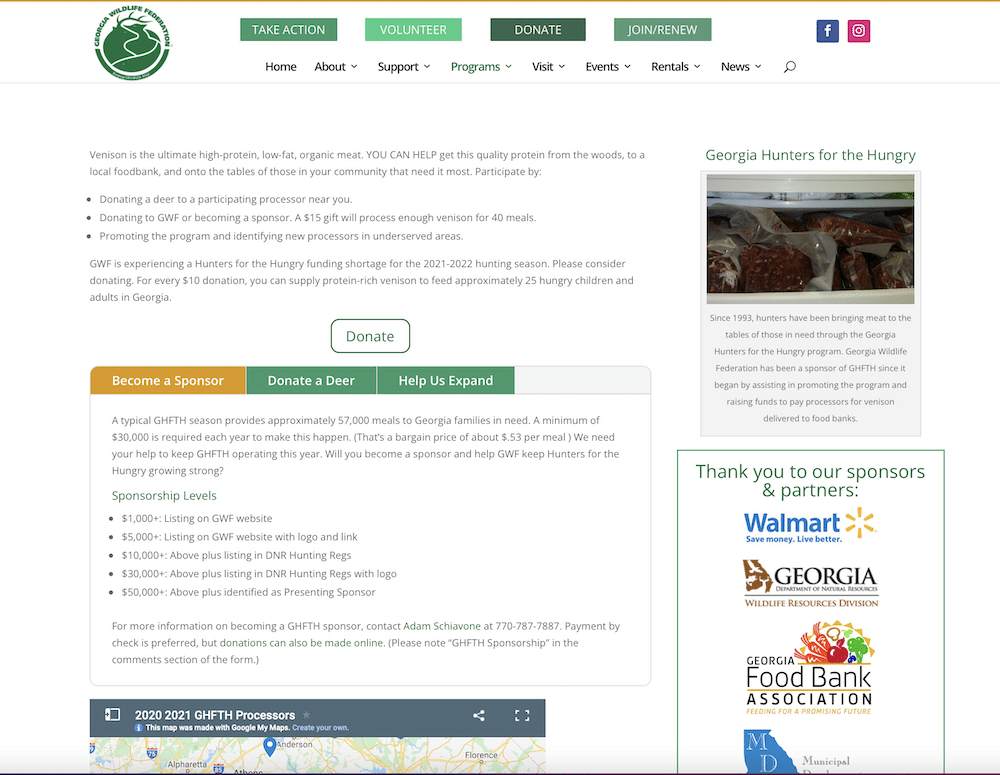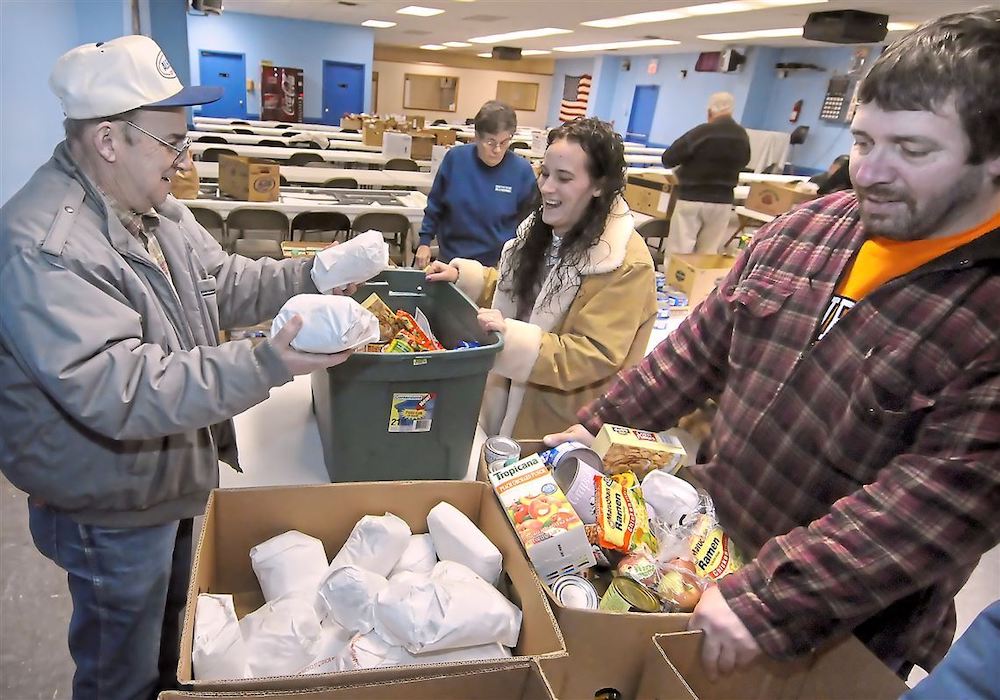Arrowing an elk, deer or moose yields a lot of lean, organic venison that’s full of protein and highly nutritious. For most American hunters, the single most important reason for hunting is to obtain meat. If you shot enough big-game animals to fill your freezer, consider donating surplus meat or shooting another to donate entirely.
According to Feeding America, 41 million Americans struggle with hunger. Donating venison and other wild game meat is a good way to provide meals to those in need. It also feels good and puts hunters and hunting in a positive light. For more reasons to donate venison, read the Bowhunters United article “4 Reasons to Donate Venison This Season.”
The Congressional Sportsmen’s Foundation found that hunters donated 2.8 million pounds of wild game meat to programs around the country in 2010, which provided 11 million meals. It’s obvious venison donations go a long way. Be a part of the hunting community that makes a difference for Americans.
If you’re ready to donate venison, consider these options.
Many game meat donation organizations exist and have established programs in states throughout the country. Several popular programs include Buckmasters’ Project Venison, Farmers and Hunters Feeding the Hungry, Hunters for the Hungry, Hunters Sharing the Harvest, and Sportsmen Against Hunger. These organizations fund processing costs through approved wild game processors, allowing hunters to donate animals for free. Once the meat is processed, the organizations work with food banks that distribute the meat to those in need.
Some states have their own programs to feed the hungry, too. A quick Google search for venison donation programs in your state can point you in the right direction. You can also check your state wildlife agency website for recommendations. Choose an organization you feel comfortable supporting and read their donation rules to get started, as organizations vary in their operations and requirements.
When donating through a national organization, you usually have two options. One, you can donate an entire deer and the organization will pay to have it processed. Or two, you can pay to process your deer and donate a portion of the meat to the organization. If you feel inclined, a third option is to donate a deer, as well as the processing costs, and have the organization distribute the meat as needed.
You can also just personally give venison to friends, families or other individuals. Ask around to see if anyone needs or wants venison. Check with your co-workers, church members or the administrators at your local school. Someone might know of a family in need and can help connect you.
Then, ask the recipient how they want to receive the donation. Do they want the carcass to process themselves? Are they willing to pay processing fees if you drop the animal off? Or would they prefer a few pounds of meat already processed and packaged? Talk through the options and try to accommodate the person in need to the best of your abilities. Don’t forget to check and follow your state’s regulations for properly tagging donated game meat (more on that below).

You can make a donation to organizations like the Georgia Hunters for the Hungry program. Photo Credit: Georgia Wildlife Federation
In most cases, national organizations pay licensed processors to process deer donated by hunters, allowing hunters to walk away without paying a dime. But sometimes, these programs run out of funds, forcing processors to turn away donated meat. You can give a cash donation to these organizations so they can continue to pay processors to accept and handle meat.
Other times, food banks are required to pay for processing. This happens most often when national organizations run out of funds or if there isn’t an established program in the area. In those cases, food banks work directly with processors to get meat. Connect with a food pantry in your area to see if they need financial support to provide venison to community members.
Whether you donate funds to a local food pantry or a national organization, both methods help people in need get venison. No gift is too small. In fact, the Georgia Wildlife Federation said a $10 gift could feed approximately 25 hungry children and adults through the Georgia Hunters for the Hungry program.

You can donate venison to food pantries and other organizations. Photo Credit: Pittsburgh Post-Gazette
Gifting venison can be a lifesaver, literally. It’s also a great way to introduce people to bowhunting. Take every opportunity to share your passion for bowhunting and show others how thoughtful hunters are and how good venison can taste. Making a venison donation is good for all, and it opens the door to follow-up conversations about bowhunting.